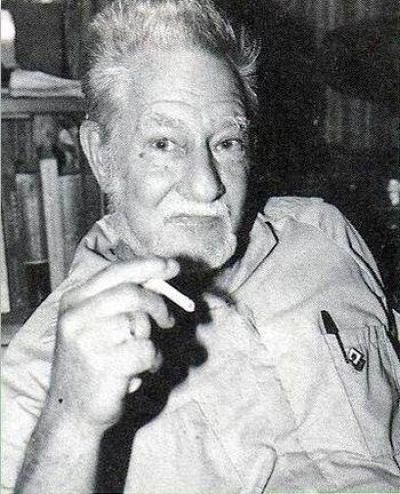I can see why this was made into an episode of The Twilight Zone as it practically reads like a script from the show. Maybe I need to watch the episode again to better connect with this story, because it definitely doesn’t seem like “one of the twenty finest science fiction stories every written” to me. Oh, it’s a fine story. It’s perfectly good, which I guess I better say or Anthony will think me into a grave out in the cornfield (which surely would’ve happened anyway had I been a resident of Peaksville). Apparently the Twilight Zone episode originally aired on my birthday, so that’s kind of spooky. I don’t know. I feel like I should like this story a lot more than I did. People seem sort of all out amazed by it, but it just didn’t strike me that way.

It's a Good Life
Jerome Bixby
Jerome Bixby was one of those reliable, unremarkable mid-listers the field used to supportin decades past. In general, his work was a decent way to pass a half hour but not often memorable. “It’s a Good Life” is the exception, selected for the Hall of Fame, adapted to TV and the silver screen and referenced in a number of other works. Of course, the story’s heyday was in the distant past, in a now half-forgotten era of slide-rules and black & white television. How will it read to my Young Readers?
I think for me this story suffers from being too familiar. Nothing in it particularly surprised me, and after a while the descriptions of all the different ways of placating or working around Anthony got a bit tedious.
The plot device of nobody being able to think about what they really thought about the situation made it difficult for me to connect to the characters. We get told a lot about the situation that they’re living in, but I felt very distant from the characters, and didn’t particularly care about any of them.
However, I did like how Anthony was established. I liked the scene where Anthony is trying to build a nice place for the animals to live, as it really helped to show that for the most part Anthony isn’t being intentionally malicious, he just doesn’t understand why what he’s doing is harmful.
I think this story is fine, but probably would have been more interesting if I wasn’t as familiar with the types of ideas behind it, or if it there had been more focus on the characters.
—Mikayla
This story was alright, but I was hoping for a better payoff. It just kind of chugged along until it ended. There was certainly a sense of dread throughout, and helplessness. This one kind of reminded me of “That Only a Mother” by Judith Merril which we reviewed early on in this series.
I wondered for most of it if anyone had ever tried having a careful conversation with Anthony. Perhaps aunt Amy, but if she did I guess it ended up with Anthony zapping her. Then at the end we discover Anthony is only three years old, so maybe not quite up to learning about concepts like free will and murder. Maybe in a few years.
That this was adapted into a Twilight Zone episode doesn’t surprise me at all. It definitely fits the depressing, dully horrifying tone of many episodes.
—Jamie
“It’s a Good Life” is presented as a creepy story from 1953 — unsettling at the time for its lampooning of an idyllic post-war life that is anything but. In a way, the story is silly to a young reader of today. But at the same time, it’s metaphorically creepy. Anthony has omnipotent reality-warping powers: the story is like the ultimate all-empowering lie told to post-industrial Millennials in real life. You can do anything. You can be anything you want. Live out your dreams. But Anthony’s dreams are disturbing. Being Anthony is the idyllic heaven of ultimate control over your world. Being in Anthony’s world is hell. And that is the ultimate nightmare of growing up: that we are secondary/tertiary/background characters in other people’s stories. David Copperfield says “Whether I shall turn out to be the hero of my own life, or whether that station will be held by anybody else, these pages must show.” Anthony refuses to let his life unfold (literally and metaphorically), making himself into a lonesome horror. Since the writing style was from the point of view of Anthony, it was almost too vague for my taste. I know the horror is supposed to come from not describing things in exact detail — the reader’s imagination is probably worse than the real visuals of the episode of Twilight Zone. (*Note: I did not watch the TV show or the movie based on this story.) But it’s just so vague as to be unthreatening. Perhaps he was turned inside out with his organs squelching in vain? Perhaps he was turned into a monster with proportions as drawn by a child? Or perhaps he was turned into a monstrous mass of animals mashed into a single creature?Overall, the story was good enough … but underwhelming. Perhaps this story is better told with visuals and sound than in words. Perhaps it doesn’t hold any nostalgic fear for me: the introduction claims it has “so thoroughly penetrated the pop culture Zeitgeist but I’m not sure it has for me, having watched none of the
media listed on the Wikipedia page for the story or for the Twilight Zone episode. Is this the originator of the creepy super-powered child trope?
